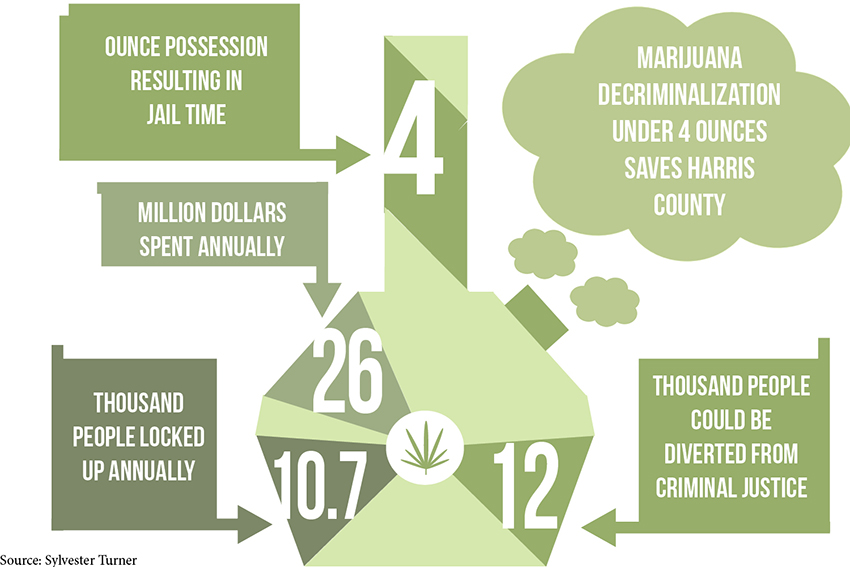On Thursday, Harris County District Attorney Kim Ogg usurped Austin in making Houston the most pot-friendly city in Texas. Perhaps Willie Nelson will move.
Under the policy introduced by Ogg in conjunction with Harris County Sheriff Ed Gonzalez, Houston Mayor Sylvester Turner and Houston Police Chief Art Acevedo, individuals apprehended with four ounces of marijuana or less will not be arrested, or even given a citation directing them to appear in court.
Instead, in lieu of a Class B or Class A misdemeanor, these individuals will be able to take a short educational course on drugs and avoid any criminal prosecution. (Repeat offenders of small amounts of pot will be able to take the class and avoid prosecution over and over again.)
Ogg had campaigned on reform of marijuana laws. However, the condemnation from some Republicans, namely Lt. Gov. Dan Patrick, was swift. Still, the Texas Legislature gives prosecutors wide authority and discretion on what cases they choose to bring. Ogg is certainly within her rights.
This reform has exposed two realities. The first is that Austin and other entities, including the State of Texas overall, desperately need to play catch-up by ending similarly asinine and outdated rules and laws. The second is that grassroots political organizing at the local level sometimes has — and often does have — profoundly successful impacts.
Last year at the State Democratic Convention in San Antonio, parts of the day were dedicated to breakout sessions in which Democrats attended caucus meetings most affiliated with their identities. There was a LGBT caucus, a Muslim caucus, a Latino caucus and, of course, a cannabis caucus. The latter had perhaps the best attendance. And when Ogg announced her plan to the group, she was given a lengthy standing ovation.
Those who believed that marijuana laws in Houston needed reform put down the blunts and Funyuns. They organized, they voted and they won. The same now must be done for all those who believe in decriminalization or legalization, at both a local and a statewide level.
Ostensibly intelligent alumni of this university have assured me time and time again that they vote in the “important” elections like presidential ones, but not the “unimportant” local contests. The reality could not be further from the truth.
Turner was elected in a nail-biter of an election with a 21 percent turnout. Ogg was nominated in a Democratic primary that boasted 11 percent turnout. And Gonzalez defeated his opponent in a Democratic primary runoff that garnered 1.43 percent turnout. Yet it was only through all three of these victories, together, that Houston’s policy could come into place.
Voters should keep this in mind as primaries for the state Legislature occur next year. In 2015, a bipartisan bill to legalize marijuana made it out of a House Committee. For it to go any further, proponents of reform must show up and vote in unflashy elections.
Horwitz is a first-year law student from Houston. He is a senior columnist. Follow him on Twitter @NmHorwitz.





















